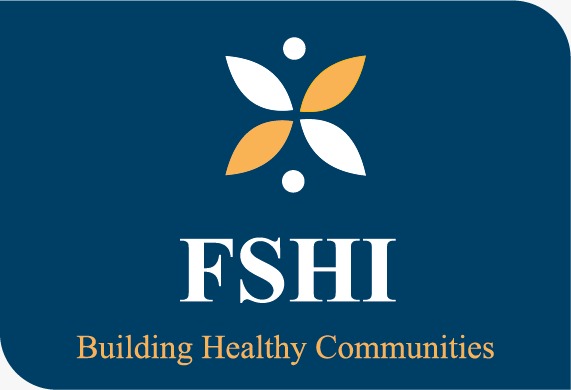A Call to Action- I CARE
A response to the current Covid-19 public health crisis.


A call to Action – A response to the current covid crisis
Covid-19 is a public health problem therefore it needs a public health approach and solutions. The need of the hour is a response not driven by emotions alone but by professionalism rooted in public health knowledge and skills. The health system is struggling to manage as the infection rate is increasing at an accelerated pace. There exists an infodemic resulting in many myths and misconceptions regarding COVID-19 in the minds of people, which is the cause of health-seeking behavior that is not appropriate during a pandemic. The NGO collation with an experienced public health core group aims to address the gaps in the existing covid management system and strengthen it along with addressing issues related to prevention at the community level. The aim of the webinar is to provide the volunteers and health care workers correct knowledge guidance and support to address the issues related to the crisis.
Meeting ID: 879 9872 7536
Passcode: 550595
A public health and community health approach.
We are public health professionals who respond to Covid Crisis not driven by our emotions alone but by our professionalism too.
Combating COVID-19 through a coalition of NGOs by focusing on rapid action in micro containment at the home and communities’ level is the foundational approach driving this initiative. There is an information overload (WHO calls it infodemic’) from various sources.
We want to give current accurate information along with human touch which is missing in the current information saturation related to covid.
The I CARE initiative by the coalition of public health institutions and civil society organisations will address the following 4 areas.
Focus areas
1. The primary goal is to reduce the pressure of the secondary and tertiary Covid treatment centers by strengthening the home quarantine by supporting to comply the protocols. This we intend to initiate by mobilizing and equipping volunteers with or without health background.
2. At community level we want to focus on protection of vulnerable people by promoting compliance to the preventive protocols.
3. We want to promote vaccination by motivating all those who are eligible to get vaccinated. We want to address the benefits of vaccination and myths and misconceptions related to vaccination. There is a vaccine shortage, we hope the issues will be resolved and vaccines will be available soon.
4. Finally, we want to promote the general preventive measures to be taken by the by people who are healthy and not tested positive for Covid. There are issues observed in relation to compliance, we will try to address these issues.
Line of response
- Volunteers Resource Pool (VRP): Anyone can be part of the VRP. They may or may not have health background but if They have the heart and time to reach out, we will equip them. They can be a male or female 18 years and above with an access to a smart phone. We intend to reach out to the needy virtually and physically. If they are technically qualified and competent to address, they can be part of the core resource team.
- Strengthen the Home Quarantine Process: The core resource team comprises of professionals with skills and expertise and are equipped with Covid protocols and guidelines. The core resource team will mobilize volunteers, equip them and connect them with the Covid positive individuals and their families to provide the support required with guidance. As a volunteer you will support the entire quarantine period with guidance and
to support from experts. There are already 100 volunteers with health background across the country who have undergone an orientation on home quarantine protocol and they will also undergo the orientation on psychosocial aspects shortly.
- Community based action by citizen volunteers: As a volunteer if you want to address the masseurs 2,3 and 4, you can be part of any of the coalition partners and they will connect you with the communities. Community based action by coalition partners. There are another 100 people from the communities serviced by coalition partners who are also ready to do this, but they are unable to do as they require economic subsistence. We are exploring funding partners.
- Community based action by coalition partners: There are another 100 people from the communities serviced by coalition partners who are also ready to do this, but they are unable to do as they require economic subsistence. We are exploring funding partners.
Present Partners of the Coalition.
The coalition partners have more than 2-3 decades of implementing programme for various community groups supported by national and international agencies. The coalition also has strong professional public health background.
1. Society For People’s Action For Development (SPAD): SPAD was set up in 1993 and was registered as an NGO under the Karnataka Societies Registration Act initiated by Alumni of School of Social Work, Roshni Nilaya Mangalore. SPAD currently implements projects in Bangalore urban, on public health issue like HIV prevention and mitigation and enabling vulnerable communities to access public health care services. Over years, the organization has handled projects from bilateral and government agencies that are similar to the type of the project proposed here of DFID, OXFAM, KSAPAS etc. The institution has developed capacities and systems to monitor progress, finances, documenting and learning.
2. Association for Promoting Social Action (APSA): APSA is a 40-year-old child rights NGO working in Bangalore & Hyderabad to empower marginalized & vulnerable families in about 100 urban poor slums. Since March 2020, APSA has also engaged in extensive Covid-19 relief work in its working areas. Through partnerships with government departments, CSOs, CBOs, NGOs & private individuals, APSA has reached more than 10,400 families and 15,000 individuals with relief aid including dry & cooked food packets, nutrition & educational kits, fresh fruit & vegetables, & personal hygiene materials. Over the last 6 months in particular, the Azim Premji Philanthropy has supported this.
3. Maarga – A Community Based Organizations Working with Urban Poor Maarga is a community-based organisation in Karnataka that works for equitable distribution of fundamental resources and respect for human dignity and diversity where urban deprived communities are fearlessly enabled to voice their concern for change. Maarga works with promotion of education and education among deprived communities living in slums. Maarga has reached out to more than 8000 people who are high risk for covid with condition such as hypertension and diabetes during the first wave of covid-19 which was supported by Azim Premji Philanthropic Initiative (APPI)
4. Movement for Alternatives and Youth Awareness (MAYA): MAYA (Movement for Alternatives and Youth Awareness) is a Karnataka-based non-governmental organization (NGO) worked in the field of education and livelihood for more than 25 years. During the first wave, MAYA has worked with Health and Family Welfare Department, Women and Child Development and Rural and Panchayati Raj Depart on a campaign ‘Covid-19 free panchayat in 16 panchayats in Ramanagara District. Besides this home-based awareness for care and support of about 8000 people with hypertension and diabetes was provided.
5. Indian Institute of Public Health, Bengaluru (Vijinapura slum outreach team): IIPH is professional public health resource organisation, part of Public Health Foundation of India, which has branches in all the regions of the county. IIPH in Bangalore has been working with about
2500 urban poor households in Vijinapura slums. The 5 CHWs functioning there are already working with people with high-risk conditions such as hypertension and diabetes.
6. Name: CIVIC Bangalore (Citizens’ Voluntary Initiative for the City –Bangalore): A voluntary citizens’ initiative emerged in 1990-91 as a forum for discussion and action on issues impacting Bangalore, its development and future. The initiative became a registered non-profit
charitable trust, Citizens’ Voluntary Initiative for the City of Bangalore (CIVIC Bangalore), in 1994. Realising decentralisation in the urban context, through the implementation of the 74th Constitutional Amendment (CAA), has been its main aim.
7. The Bangalore Birth Network (BBN): Bangalore Birth Network works to promote and improve maternal, new-born and child health
through evidence-based, respectful maternal and new-born care. Essential practices of care dramatically reduce the risk of morbidity and mortality and increase the well-being of the motherchild dyad, placing them on a trajectory of health and nutritional status. This is central to improving
family well-being and health in India. They are also currently running a COVID Mother Child Helpline in multiple languages.
Deliverables
1. A coalition competent to develop and execute a community model for covid-19 containment.
2. 200 Community Health Workers and Volunteers equipped to address covid related issues at community level.
3. 20,000 vulnerable individuals will be protected by adopting safety measures.
4. 50,000 families with 2,00,000 population for general awareness
5. All the covid-19 positive people within the project coverage area will be supported during home quarantine as per protocol.
6. Documentation of the learning on implementing the community based interventions.
7. Monitoring and evaluation report.
Steering Core Team
1. Dr Sathya Narayana – Public Health Expert
2. Dr Sunitha C Srinivas – Community centric capacity building for public health
3. S J Chander – Community Health management and networking
4. Ms Asha Kilaru – Public Health Expert
5. Dr Pooja Deshpande – Clinical Psychologist
6. Mrs Sunitha Chander – Public Health Nurse, Master Trainer ese issues.
